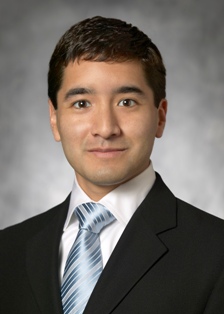The Pacific Research Institute doesn’t advocate for particular candidates, but the FlashReport does — and after reading this column below penned by Vince Vasquez, you’ll probably want to make sure that Debra Bowen does NOT become your next Secretary of State:
The E-Facts of E-Voting
By Vince Vasquez. Pacific Research Institute Today, Californians from all walks of life will be able to vote with a phenomenal technology. Californians can also be confident with “e-voting,” despite the cries of fear-mongers and conspiracy theorists.
Today, Californians from all walks of life will be able to vote with a phenomenal technology. Californians can also be confident with “e-voting,” despite the cries of fear-mongers and conspiracy theorists.
E-voting systems, also known as direct recording electronic (DRE) machines, employ easy-to-use touch screens and other high-tech devices to make voting simpler, safer, and more accessible for the electorate than traditional paper ballots. Historically, such ballots were manhandled, facilitating low-level fraud as pre-scored cards and connect-the-line sheets were easily corrupted by poll workers with a simple punch or mark of a pen. But with DRE features like remote vote storage, proprietary software, a visual verification screen of selections and special hardware for the elderly and disabled, most Election Day problems can be innovated out of existence.
Nearly 40 million Americans in more than 700 counties used DRE machines in the last presidential election, and more than 65 million will employ them this fall. The e-voting experience has been a resounding success that has generated relatively few complaints from the electorate. To be sure, there have been some legitimate problems with DRE machines, but many have been found to be the result of user error, poll worker bungling or ineffective leadership from local election authorities. Unfortunately, these early missteps have opened the policy doors for open-source zealots, wide-eyed activists and shrewd politicians to push their agenda to scrap DREs in future state elections.
Claiming that e-voting is inherently unsafe, and stoking unease with far-fetched schemes of digital deceit, these opponents advocate for the superfluous use of DRE paper trails and imposition of open-source software. One of the most masterful advocates of DRE red-tape is Debra Bowen, a candidate for California Secretary of State. She has used her campaign for the state’s top elections office to call for new DRE sanctions that would satisfy even the most extreme opponents. Any voter endorsement of these new machine mandates is misguided.
Paper trails are meaningless if manual counts and voter verification are still prone to fraud and human error. “Voter-verified” printers discriminate against the disabled, and have already proven susceptible to the same hardware malfunctions as home and office models. And according to a state report this year, a broad open-source mandate on e-voting machines would be costly, difficult to implement, and could backfire by creating new opportunities for hackers to infiltrate the systems.
Debra Bowen and company are poor students of California voting policy. Her advocacy of more red tape and risky industry requirements jeopardizes the incredible value of these innovative machines. Her mandates also overwhelm local election officials already stymied by limited resources and high expectations. As the California Association of Clerks and Elections Officials (CACEO) explain, “elections in California are at risk of collapsing under the weight of their own complexity.”
Voters would be wise to scrutinize Bowen’s proposals that would risk bogging down our state elections into another 2000 Florida fiasco. State leaders should encourage efforts by county election officials to adopt more localized and effective alternatives, such as professionalizing poll workers, creating citizen voting councils, and creating a competitive DRE vendor bidding process. To ensure e-ballot integrity, county election officials should negotiate the best vendor contract for their local voters, and institute stricter Election Day protocols for both machines and poll workers.
Feeding the state’s voting system to ideological lions is irresponsible and self-serving. If public leaders are serious about strengthening voter confidence in California, they should embrace new technological solutions, not the failed policies of the past.
Vince Vasquez is a policy fellow at the Pacific Research Institute, a think tank based in San Francisco. Mr. Vasquez is also the co-author of “Upgrading America’s Ballot Box: The Rise of E-Voting.”

